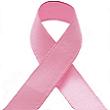
A recent survey found that a majority of cancer patients use some form of integrative medicine, but over a quarter of these patients don’t tell their oncologist about it. Healthcare providers need to proactively discuss dietary supplements and integrative therapies with their patients – avoiding dangerous interactions and ensuring safe use of these therapies is crucial for all patients, but especially in a cancer setting.
Checking for interactions with chemotherapy medications is one of the biggest concerns. We know that cytochrome P450 3A4 (CYP3A4) is the most common enzyme involved in drug metabolism, and chemotherapy agents are no exception. Some examples of chemotherapy drugs metabolized by CYP3A4 include doxorubicin, etoposide, paclitaxel, vincristine, imatinib, sunitinib, nilotinib, and sorafenib. The metabolism of these drugs can be affected if taken together with a CYP3A4 inhibitor or inducer – possibly reducing treatment effectiveness or increasing side effects. Over 70 natural medicines have been identified as CYP3A4 inhibitors, and over 15 natural medicines have the potential to induce CYP3A4. It’s important to counsel patients about this – even if they don’t report taking any supplements, they should be aware of this risk.
Antioxidants also have the potential to interfere with cancer treatments. This topic remains controversial, as some believe that antioxidants, such as vitamin C, might make chemotherapy more effective by reducing oxidative stress that could interfere with cancer cell death. But there’s also concern that antioxidants might reduce the activity of chemotherapy drugs that generate free radicals, making them less effective. For now, the best advice is to tell patients to focus on eating antioxidant-rich foods rather than taking high doses of supplements.
Lastly, watch out for dietary supplements that can increase sun sensitivity and those that might interfere with medications used during and after surgery. Taking a supplement that increases sun sensitivity while receiving radiation treatment can lead to severe reactions. And many supplements can interfere with blood sugar control and impact bleeding risk, leading to complications for patients who require surgery.
Providing patients with information is key. Take advantage of our charts and interaction checker to help counsel patients on the safe use of therapies when appropriate – and to confidently explain why some therapies should be avoided altogether.
The information in this brief report is intended for informational purposes only, and is meant to help users better understand health concerns. This information should not be interpreted as specific medical advice. Users should consult with a qualified healthcare provider for specific questions regarding therapies, diagnosis and/or health conditions, prior to making therapeutic decisions. Copyright © 2024 NatMed. Commercial distribution or reproduction prohibited. NatMed is the leading provider of high-quality, evidence-based, clinically-relevant information on natural medicine, dietary supplements, herbs, vitamins, minerals, functional foods, diets, complementary practices, CAM modalities, exercises and medical conditions. Monograph sections include interactions with herbs, drugs, foods and labs, contraindications, depletions, dosing, toxicology, adverse effects, pregnancy and lactation data, synonyms, safety and effectiveness.
